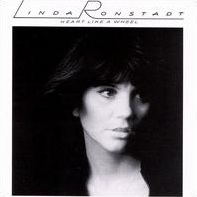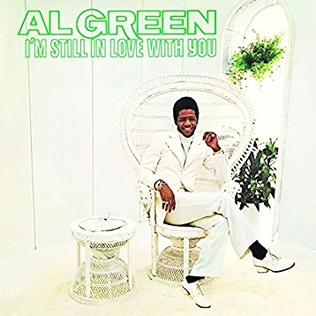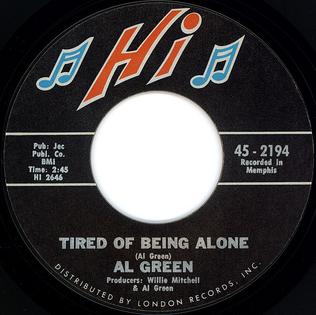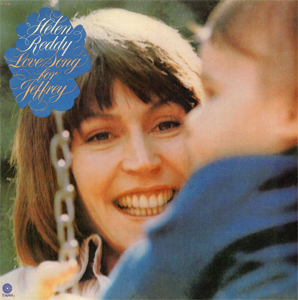
Mathis James Reed was an American blues musician and songwriter. His particular style of electric blues was popular with blues as well as non-blues audiences. Reed's songs such as "Honest I Do" (1957), "Baby What You Want Me to Do" (1960), "Big Boss Man" (1961), and "Bright Lights, Big City" (1961) appeared on both Billboard magazine's rhythm and blues and Hot 100 singles charts.

Tapestry is the second studio album by American singer-songwriter Carole King, released in 1971 on Ode Records and produced by Lou Adler. The lead singles from the album—"It's Too Late" and "I Feel the Earth Move"—spent five weeks at number one on both the Billboard Hot 100 and Easy Listening charts.

Something New is an album by English rock band the Beatles, released in 1964 for the North American market only.

The Early Beatles is the Beatles' sixth album released on Capitol Records, and their eighth album overall for the American market. All of the tracks on this album had previously been issued on the early 1964 Vee-Jay Records release Introducing... The Beatles. The front cover photo for this album features the same back cover photo for the British LP Beatles for Sale.

Heart Like a Wheel is the fifth solo studio album by Linda Ronstadt, released in November 1974. It was Ronstadt's last album to be released by Capitol Records. At the time of its recording, Ronstadt had already moved to Asylum Records and released her first album there; due to contractual obligations, though, Heart Like a Wheel was released by Capitol.

12 × 5 is the second American studio album by the English rock band the Rolling Stones, released in 1964 following the success of their American debut The Rolling Stones . It is an expanded version of the EP Five by Five, which had followed their debut album in the UK.

Al Green Explores Your Mind is the eighth album by soul singer Al Green. Unlike previous Al Green albums, this album featured only one major hit, the U.S. #7 hit "Sha-La-La ", but did contain the original version of "Take Me to the River", a song which went to #26 on the Billboard chart when covered by Talking Heads in 1978. In 2004, the song "Take Me to the River" was ranked number 117 on Rolling Stone magazine's list of the 500 greatest songs of all time.

Al Green Is Love is the ninth album by soul singer Al Green. It was his final of six consecutive albums to hit number 1 on the R&B/Soul Albums chart, and it peaked into the Top 40 on the Pop Albums chart.

Al Green's Greatest Hits is a 1975 greatest hits release by soul singer Al Green. In 2003, the album was ranked number 52 on Rolling Stone magazine's list of the 500 greatest albums of all time, maintaining the rating in a 2012 revised list. The album's ranking dropped to number 456 in the 2020 revised list. The compilation has consistently ranked as one of the best executed 'greatest hits' albums in history. The album peaked at No. 3 on the Billboard Top Soul LPs chart and No. 17 on the Top LPs chart.

I'm Still in Love with You is the fifth studio album by the American gospel and soul singer Al Green, released on October 23, 1972, on Hi Records. Recording sessions took place during 1972. The album was produced solely by Willie Mitchell. The album peaked at number four on the US Billboard 200 and number one on the US Top R&B/Hip-Hop Albums and produced four singles: "Love and Happiness" which was rated ninety-eight on Rolling Stones's 500 Greatest Songs of All Time as well as "I'm Still in Love with You" and "Look What You Done for Me" which were top five hits on the US Pop Chart. In 2003, the album was ranked number 285 on the 500 greatest albums of all time by Rolling Stone, 286 in a 2012 revised list, and number 306 in a 2020 revised list. The introductory drum break to the album's second track, "I'm Glad You're Mine", was sampled by The Notorious B.I.G. in his later-posthumous single "Dead Wrong".
"Come Go With Me" is a song written by C. E. Quick, an original member of the American doo-wop vocal group the Del-Vikings. The song was originally recorded by The Del-Vikings in 1956 but not released until July 1957 on the Luniverse LP "Come Go With The Del Vikings". The final version of the song was released in the second week of January 1957 and was led by Gus Backus. When Joe Averbach, the owner of Fee Bee Records couldn't handle the demand, he signed with Dot Records in late January 1957; the song became a hit, peaking at No. 4 on the US Billboard Best Sellers. It also reached #2 on the R&B chart.

Livin' for You is the seventh album from soul musician Al Green. Released in 1973 it includes the hit title track and "Let's Get Married." The album cracked the Top 25 in the Billboard Pop Albums chart and was the fourth album from the artist to peak at #1 on the Soul Albums chart.

Truth N' Time is a studio album by the soul singer Al Green, released in 1978. It was Green's last album of mostly secular music for many years.

"Tired of Being Alone" is a soul song written by American singer Al Green. It reached number 11 on the Billboard Hot 100 and number seven on the Soul Singles Chart in 1971. Billboard ranked it as the number-12 song for 1971.

That's What Friends Are For is an album by American singers Johnny Mathis and Deniece Williams that was released in July 1978 by Columbia Records. The project was a continuation of the pairing of the artists that began on his previous LP, You Light Up My Life, which included "Too Much, Too Little, Too Late", the duet that was on its way to number one on three different charts in Billboard magazine as the recording sessions for this album got underway.
"For the Good Times" is a song written by Kris Kristofferson, first recorded by singer Bill Nash in 1968 before appearing on Kristofferson's own debut album in April 1970. After a recording by Ray Price became a #1 hit single in June of that year, the song established Kristofferson as one of country and popular music's top songwriters while giving Price his first chart-topping country and western song in 11 years.

Call Me is the sixth album by soul singer Al Green. It is widely regarded as Green's masterpiece, and has been called one of the best soul albums ever made. In 2003 the TV network VH1 named it the 70th greatest album in any genre. Call Me was a Top 10 Billboard Pop Album, and the third #1 Soul Album. In 2003, the album was ranked number 289 on Rolling Stone magazine's list of the 500 greatest albums of all time, and 290 in a 2012 revised list. Praised for his emotive singing style, Green here incorporates country influences, covering both Willie Nelson and Hank Williams. This album contained three top 10 singles on the Billboard Hot 100: "You Ought to Be with Me," "Here I Am " and "Call Me ."

Natural High is the second album by the soul group Bloodstone, released in 1973. It was reissued on CD in 1996 with several bonus tracks.

Love Song for Jeffrey is the fifth studio album by Australian-American pop singer Helen Reddy, released on March 25, 1974, by Capitol Records. The album focused on her family, giving special attention to those who had died within the past year. A tribute on the back cover reads: "In memory of my mother, Stella Lamond Reddy, July 1973, my father, Max Reddy, September 1973, and my beloved aunt, Helen Reddy Sr., January 1974."

Trouble in Paradise is the second, and last, album by The Souther-Hillman-Furay Band, released in 1975 on Asylum Records. It peaked at number 39 on the Billboard albums chart.


















